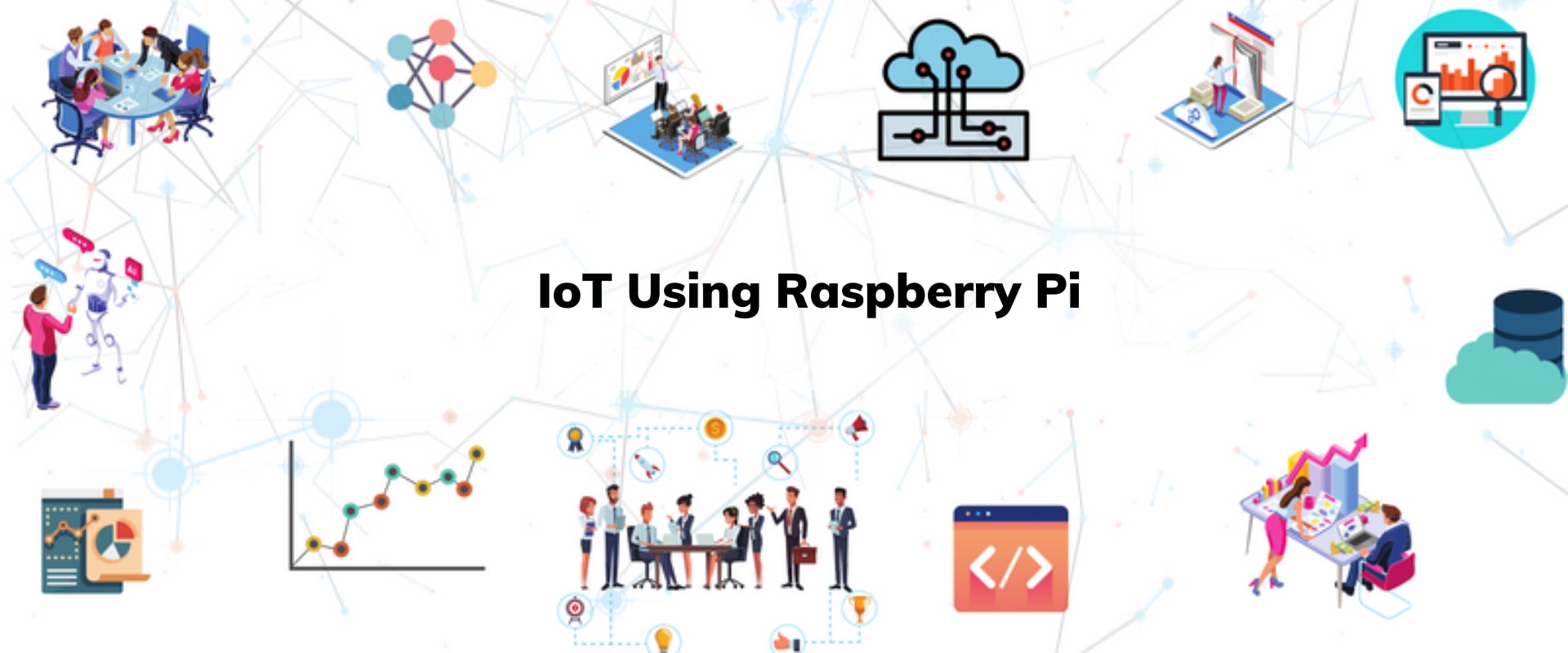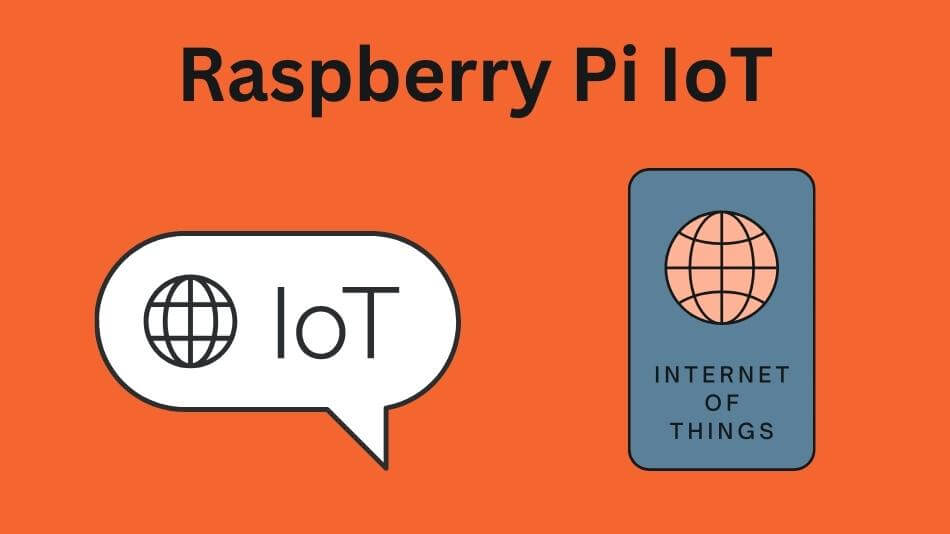The Raspberry Pi has emerged as a revolutionary device in the world of technology, particularly in the Internet of Things (IoT) domain. As IoT continues to expand, the Raspberry Pi has become one of the most popular platforms for developers and hobbyists alike. Its versatility and affordability make it an ideal choice for a wide range of applications, from smart homes to industrial automation. But what exactly makes the Raspberry Pi an IoT device?
In this article, we will delve into the role of the Raspberry Pi in IoT ecosystems, exploring its capabilities, use cases, and potential limitations. By understanding the intricacies of this powerful device, you can harness its full potential for your IoT projects.
Whether you're a beginner looking to dive into the IoT world or an experienced developer seeking to expand your knowledge, this comprehensive guide will provide valuable insights into the Raspberry Pi's role in modern technology. Let's get started!
Read also:Aishah S A Comprehensive Guide To Her Life Career And Achievements
Table of Contents
- Introduction to IoT
- Raspberry Pi Overview
- What Type of IoT Device is the Raspberry Pi?
- Key Features of the Raspberry Pi
- Common IoT Applications Using Raspberry Pi
- Raspberry Pi Hardware Variants
- Software Support for Raspberry Pi
- Security Considerations for Raspberry Pi IoT Devices
- Comparison with Other IoT Devices
- The Future of IoT and Raspberry Pi
Introduction to IoT
The Internet of Things (IoT) refers to the network of interconnected devices that can communicate and exchange data over the internet. These devices range from simple sensors to complex machines, all designed to enhance efficiency, automation, and data collection in various industries.
The growth of IoT has been exponential, with Statista estimating that there will be over 25 billion connected devices by 2030. This growth is fueled by advancements in technology, reduced hardware costs, and increasing demand for smart solutions.
Among the many devices contributing to this growth, the Raspberry Pi stands out as a versatile and accessible platform for IoT development. Its ability to integrate with sensors, actuators, and other components makes it an ideal choice for both small-scale projects and large-scale deployments.
Raspberry Pi Overview
The Raspberry Pi is a series of small single-board computers developed by the Raspberry Pi Foundation. Initially launched in 2012, the Raspberry Pi was designed as an educational tool to promote computer science education. However, its affordability and flexibility quickly made it a favorite among hobbyists, developers, and professionals.
Over the years, the Raspberry Pi has evolved into a powerful platform capable of running a wide range of applications, including media centers, home automation systems, and even servers. Its open-source nature and extensive community support further enhance its appeal.
What Type of IoT Device is the Raspberry Pi?
The Raspberry Pi is classified as a general-purpose IoT device. Unlike specialized IoT devices designed for specific tasks, the Raspberry Pi offers a versatile platform that can be adapted to various applications. Its ability to run a full-fledged operating system, such as Linux, allows it to handle complex tasks that go beyond simple data collection and transmission.
Read also:M249 Gun The Ultimate Guide To The Military Machine Gun
Key Characteristics of the Raspberry Pi as an IoT Device
- Flexibility: The Raspberry Pi can be programmed and configured for a wide range of IoT applications.
- Connectivity: It supports multiple communication protocols, including Wi-Fi, Bluetooth, and Ethernet, enabling seamless integration into IoT networks.
- Scalability: From small-scale projects to large-scale deployments, the Raspberry Pi can be scaled to meet the demands of various applications.
Key Features of the Raspberry Pi
The Raspberry Pi is equipped with several features that make it an excellent choice for IoT projects. Some of these features include:
- Processing Power: Modern Raspberry Pi models come with powerful processors capable of handling demanding tasks.
- Memory: With options ranging from 1GB to 8GB of RAM, the Raspberry Pi can accommodate a variety of project requirements.
- Connectivity Options: Built-in Wi-Fi, Bluetooth, and Ethernet provide robust connectivity options for IoT applications.
- GPIO Pins: General-purpose input/output (GPIO) pins allow the Raspberry Pi to interface with sensors, actuators, and other peripherals.
Common IoT Applications Using Raspberry Pi
The Raspberry Pi's versatility makes it suitable for a wide range of IoT applications. Some common use cases include:
Home Automation
Using the Raspberry Pi, you can create a smart home system that controls lighting, temperature, and security systems. By integrating with sensors and actuators, the Raspberry Pi can automate various tasks, enhancing convenience and energy efficiency.
Environmental Monitoring
The Raspberry Pi can be used to monitor environmental conditions such as temperature, humidity, and air quality. By collecting data from sensors and transmitting it to cloud platforms, the Raspberry Pi enables real-time monitoring and analysis.
Industrial Automation
In industrial settings, the Raspberry Pi can be employed for tasks such as machine monitoring, predictive maintenance, and process control. Its ability to interface with industrial sensors and systems makes it an ideal choice for these applications.
Raspberry Pi Hardware Variants
The Raspberry Pi Foundation has released several hardware variants over the years, each tailored to specific use cases. Some of the most popular variants include:
- Raspberry Pi 4 Model B: The latest model, featuring improved processing power and memory options.
- Raspberry Pi Zero: A compact and affordable variant suitable for lightweight projects.
- Raspberry Pi Compute Module: Designed for embedded applications, this variant offers greater flexibility for custom designs.
Software Support for Raspberry Pi
The Raspberry Pi is compatible with a wide range of operating systems and programming languages, making it a versatile platform for IoT development. Some popular options include:
- Raspberry Pi OS: A Linux-based operating system optimized for the Raspberry Pi.
- Python: A widely used programming language for IoT projects due to its simplicity and extensive libraries.
- Node-RED: A visual programming tool that simplifies IoT development by allowing users to create workflows using a drag-and-drop interface.
Security Considerations for Raspberry Pi IoT Devices
Security is a critical concern in IoT applications, and the Raspberry Pi is no exception. To ensure the security of your Raspberry Pi-based IoT projects, consider the following best practices:
- Regular Updates: Keep the operating system and software up to date to protect against vulnerabilities.
- Strong Passwords: Use strong and unique passwords for all accounts and services.
- Firewall Configuration: Configure firewalls to restrict unauthorized access to your Raspberry Pi.
Comparison with Other IoT Devices
While the Raspberry Pi is a powerful IoT platform, it is not the only option available. Other popular IoT devices include:
- Arduino: Known for its simplicity and ease of use, the Arduino is ideal for projects requiring real-time processing.
- ESP8266/ESP32: These microcontrollers offer built-in Wi-Fi and Bluetooth capabilities, making them suitable for wireless IoT applications.
- BeagleBone Black: Similar to the Raspberry Pi, the BeagleBone Black offers a powerful platform for IoT development with a focus on real-time processing.
The Future of IoT and Raspberry Pi
As IoT continues to evolve, the Raspberry Pi is likely to play an increasingly important role in shaping its future. With ongoing advancements in hardware and software, the Raspberry Pi will become even more capable and accessible, enabling developers to create innovative solutions for a wide range of applications.
Furthermore, the growing demand for smart solutions in various industries will drive the adoption of IoT technologies, with the Raspberry Pi serving as a cornerstone for many projects. By staying informed about the latest developments and trends, you can leverage the Raspberry Pi's capabilities to stay ahead in the rapidly evolving IoT landscape.
Kesimpulan
In conclusion, the Raspberry Pi is a versatile and powerful IoT device that offers endless possibilities for developers and hobbyists alike. Its ability to handle complex tasks, combined with its affordability and extensive community support, makes it an ideal choice for a wide range of applications.
We encourage you to explore the potential of the Raspberry Pi by experimenting with different projects and applications. Feel free to leave a comment below sharing your experiences or questions about the Raspberry Pi. Additionally, don't forget to check out our other articles for more insights into the world of IoT and technology.

